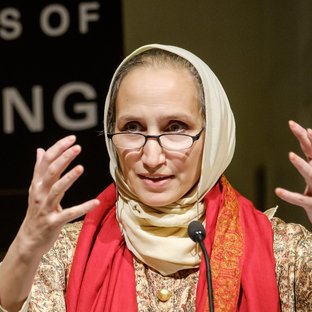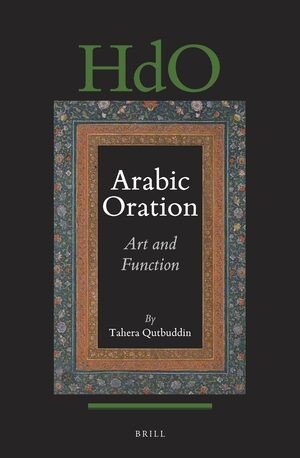
Professor Tahera Qutbuddin
Biography
Originally from Mumbai, I earned a BA and Tamhidi Magister from Ain Shams University, Cairo, and a PhD from Harvard. I taught briefly at Yale and the University of Utah, then for two decades at the University of Chicago.
Since July 2023, I am AlBabtain Laudian Professor of Arabic in the Faculty of Asian and Middle Eastern Studies at Oxford, and a Professorial Fellow of St John’s College.
Teaching
I teach classical Arabic literature from its oral beginnings in the 7th century to the cusp of modernity around 1800, seeing it as a direct window into the rich culture and thought of the vast medieval Arabic-speaking world.
My undergraduate and postgraduate classes include broad surveys of prose and poetry, as well as focused studies of themes and genres. One of the joys of being at this stellar institution is the opportunity to work with insightful and curious students!
Research Interests

I study classical Arabic literature and Islamic studies, focusing on intersections of the literary, the religious, and the political in poetry and prose. Over the years, I’ve ranged across several fields – orations of Imam Ali; ethical hadith of the Prophet Muhammad; Fatimid and Tayyibi-Bohra poetry, history, theology, and law; literary features and symbolic exegesis of the Quran; classical Arabic women’s orations and poetry; and the history, functions, and literary genres of Arabic in India – what connects them all for me is the beauty of their language, and their grounding in themes relating to virtue and character and deep meaning-of-life issues.
My most recent book is Arabic Oration: Art and Function (Brill 2019), in which I present a comprehensive theory of this pre-eminent genre of Arabic prose in its foundational, oral period in the 7th and 8th centuries. I talk about types of orations and themes, preservation and provenance, structure and style, orator–audience authority dynamics, and, with the shift from an oral to a literate culture, oration’s influence on the chancery epistle. In the final chapter, I discuss the classical Arabic oration’s continuing influence on the contemporary Friday sermon, in terms of language, doctrine, politics, and ritual.